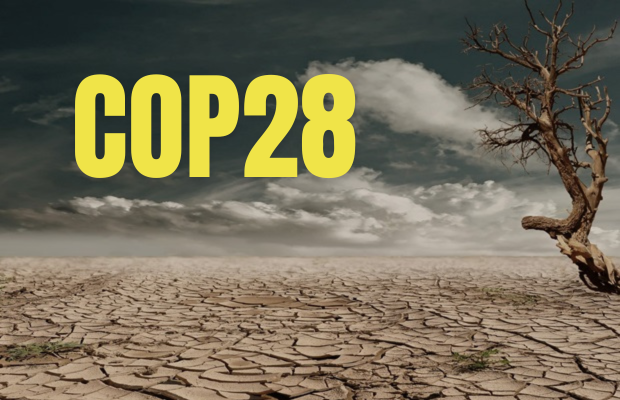

COP28 Concludes With An Agreement On Climate Change
The whole world is waiting for with baited breath for the Conference of Parties (COP28) conference in Dubai for global negotiations on climate change. The event of global leaders is set to start from November 30 until December 12 for a series of multilateral talks.
This year’s theme, “Technology and Innovation, Inclusion, Frontline Communities, and Finance,” sets the stage for crucial discussions.
At COP, members are watching carefully and hoping to conclude some key issues. Before the beginning of the summit, Dr. Sultan Al Jaber, COP28 President, set the tone by welcoming the agreement they had reached with the Transitional Committee.
This would pave the way for an agreement at COP28 to operationalize the Loss and Damage Fund. This fund will be hosted initially by the World Bank temporarily and it will be made independent later.
Following are the five major expectations from the upcoming COP28.
Before the COP, members attempted to develop a framework for the Paris Agreement. They had set the ‘Global Goal on Adaptation’ to build resilience to the increasingly devastating impacts of climate change.
Last year, developing countries proposed that losses and damages be included in the COP27 agenda. The Island countries, which are the most vulnerable communities to the impacts of climate change, have come together to demand the establishment of a compensation fund at COP 27. It is the most vocal of the list of expectations from COP27 to find an amicable solution that is quick and acceptable to all.
Responding to the call for financial support, the UAE and EU reached an agreement in the pre-event negotiation on the loss and damage fund. In this, the EU negotiated with Abu Dhabi to reach an important agreement with global partners. As per the Wopke Hoekstra Commissioner for Climate Action, ‘The world will get a fund focused on support for the most vulnerable. All parties can contribute to it, and I believe that all who can, should do so.’
At COP, the IRENA report emphasized policy recommendations for governments and the private sector on increasing global renewable energy capacity to at least 11,000 GW. The report also considers the target of doubling annual average energy efficiency improvements in the target period. This falls under the COP28 Presidency’s Action Agenda objective of fast-tracking a just and orderly energy transition to keep 1.5 °C within reach.
These goals align with the COP targets for setting up infrastructure and system operation, power grids, energy storage, creating an end-use electrification, sector coupling, and infrastructure planning on demand-side management. The IRENA report reiterates the emphasis on the creation of infrastructure and system operation, which would enable the creation of power grids, energy storage, end-use electrification, sector coupling and infrastructure planning, and demand-side management.
2023 COP 28 also marks the conclusion of the first Global Stocktake (GST). The stocktake was first undertaken in 2022. In the stockage, the financial aid from advanced economies goes to developing countries. The stockage is scheduled to be concluded at the UN Climate Change Conference (COP28) in 2023. Since the global stocktake is set to be completed every five years, this phase would occur again next in 2028 and 2033.
This is the first stocktake since Glasgow, which makes this year particularly significant. At Glasgow, it was decided that the stockage would take place every two years rather than the previously agreed-upon five years. This assessed whether we are on track to limit global temperature as set by the Paris Climate Accord.
IRENA report places emphasis on ‘fast-tracking’ the energy transition and on ‘reducing emissions before 2030’. It identifies climate finance as having a transformational role by delivering on old promises and establishing a new financial framework. This is especially important in fulfilling the need to scale up public and private finance.
Another core question is regarding the relation between aligning financial flows and the responsibility of developed countries in Article 9 of the Paris Agreement to provide and mobilize financial resources that support developing countries’ climate action.
Similarly, the World Bank Group also estimates that low – and middle-income countries host 89 percent of the approximately $1 trillion in global coal-fired power generation at risk of being stranded. Fund a just power transition will require much higher capital flows than are being mobilized today to meet the growth needed in lower-carbon electricity production.
The UNFCCC mentions that this is the first time the UN is holding its global stocktake, which is set to be completed every five years. This phase would occur again in 2028.
The first-ever stocktake got underway in 2022 and is scheduled to conclude at the UN Climate Change Conference (COP28) at the end of 2023.
Delivering a stocktake outcome at COP28 with solution pathways and concrete milestones and targets for each workstream can help narrow those gaps. The stocktake will also lay the foundation for countries to update and enhance their national climate action plans (known as Nationally Determined Contributions), which they are required to do in 2025.
1. The mandate for blending Compressed Biogas (CBG) with natural gas has come into effect…
Andhra Pradesh is striving towards greening its energy sector with quite some speed. In a…
With an objective to bolster India’s green energy goals, a Tripartite Agreement has been signed…
The Union MNRE Minister Pralhad Joshi launched the Green Hydrogen Certification Scheme of India (GHCI)…
India’s energy conglomerate Bharat Petroleum Corporation Limited (BPCL) has commissioned a 5MW green hydrogen plant…
In a historical development, the European Space Agency (ESA) has successfully launched its pioneering ‘Biomass’…